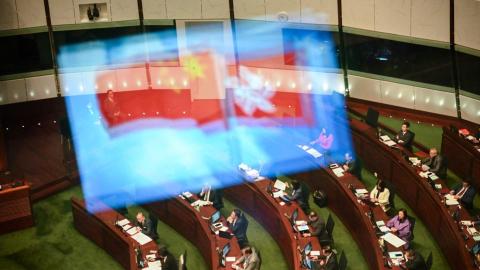Hong Kong's new national security law comes into force

Hong Kong's new national security law came into force on Saturday, putting into immediate effect tough penalties of up to life imprisonment for crimes including treason and insurrection.
The law — commonly referred to as Article 23 — targets five categories of national security crimes and was swiftly passed by Hong Kong's opposition-free legislature on Tuesday.
The United States, the European Union, Japan and Britain have been among the law's strongest critics, with U.K. Foreign Minister David Cameron saying it would "further damage the rights and freedoms" of those in the city.
U.S. Secretary of State Anthony Blinken on Friday expressed "deep concern" that the law could be used to undermine rights and curb dissent, adding it could damage Hong Kong's reputation as an international finance hub.
But Hong Kong leader John Lee has called the passage of the "Safeguarding National Security Ordinance" a "historic moment".
He has often cited Hong Kong's "constitutional responsibility" to create the new legislation as required by the Basic Law, the city's mini-constitution since its handover from Britain to China in 1997.
Lee also said the law was necessary to "prevent black-clad violence", a reference to Hong Kong's massive and at times violent pro-democracy protests in 2019, which brought hundreds of thousands to the streets demanding greater autonomy from Beijing's grip.
In response, authorities cracked down on protesters, and Beijing imposed a national security law in 2020 — targeting secession, subversion, terrorism and collusion with foreign forces — which has effectively silenced opposition voices among Hong Kong's once-vibrant civil society.
Nearly 300 people have been arrested under the 2020 law so far.
...
- Log in to post comments
